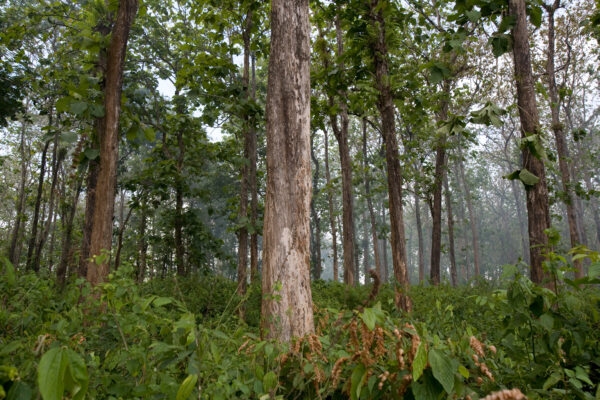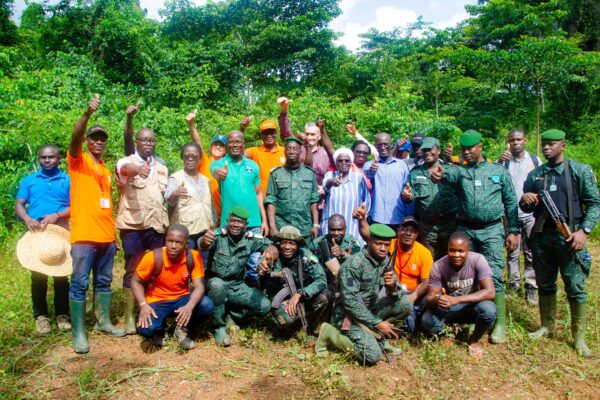Asia Pulp and Paper’s ‘No Deforestation’ announcement made headlines around the world. So how was it received?
In an interview with Mongabay, Rainforest Action Network’s forest campaign director, Lafcadio Cortesi, said: “…we continue to have major concerns about its implementation given the company’s history of reneging on past commitments of this kind and due to dozens of ongoing conflicts with communities over land grabbed by the company and its wood suppliers”.
Christopher Barr, executive director of US-based forestry research firm Woods and Wayside International, responded to the announcement in The Washington Post, saying people should approach “what APP does with a healthy dose of scepticism. They have a history of setting sustainability targets that either get pushed back or don’t get met.”
However, APP’s announcement, which is the result of 12 months on-the-ground work by TFT field teams, coupled with lengthy negotiations with Greenpeace and APP’s management, could set a serious precedent for the rest of the industry.
TFT executive director Scott Poynton explained to The Guardian: “If the third-largest paper company in the world can commit to forest preservation – despite the complex social, political, economic and environmental challenges they have to navigate to do so—then any company can do it. Now, there is no excuse for companies – whether operating in Indonesia, Africa, or other forest-rich regions – to destroy forests as a consequence of feeding global demand for the goods they produce.”
Greenpeace, which has targeted APP for over a decade, welcomed the announcement, saying that if enforced it could be a watershed decision for the company, Indonesia and the paper industry. “This time looks different. And for us, this is the last chance for them to show that they are really serious about protecting the forests and peat lands of Indonesia,” said Bustar Maitar, head of Greenpeace’s forest campaign, speaking to the Wall Street Journal.
Many media outlets reported that Greenpeace has suspended its campaign against APP as long as it follows through with its pledge.
“We would like to give them time to show that they are really implementing this commitment on the ground,” Bustar Maitar told the Wall Street Journal. “We will heavily monitor and observe the progress.” So why is it different now? TFT worked with APP and Greenpeace to design APP’s Forest Conservation Policy and will be monitoring and reporting on APP’s progress towards achieving its commitments. In addition, APP’s policy specifically welcomes third party observers to verify the implementation – a first for APP and for the industry.
The significance of ongoing monitoring of APP activities should not be understated, TFT director Julien Troussier told Deutsch Welle: “The level of commitment is very different. The level of transparency is different. They have given access data to NGOs. We are deeply embedded in their operations from plantation to factory. There are satellites monitoring the areas to make sure commitments are respected.”
Speaking to Mother Jones, APP’s managing director of sustainability, Aida Greenbury, explained that campaigns from Greenpeace and others affect the company’s image more than its financial position: “The loss we suffer mostly is linked to the image, the perception about APP. If you want to be recognized as a true global leader, we don’t want any image of forest destruction or deforestation attached to us.”
Mother Jones’ Kate Shepherd pointed out the global reach of APP’s products: “If you’ve ever bought toilet paper, a bucket of KFC chicken, or photocopy paper, there’s a decent chance that it came from Asia Pulp & Paper.”
The significance of APP’s No Deforestation announcement extends further than its operations, though; it sends signals to the rest of the industry and to companies actively engaged in the destruction of tropical forests. And with doubts about how effective government or UN-led initiatives such as the Copenhagen or Rio+20 summits can really be in tackling deforestation, the role of the private sector is key. ClimateWire’s Tiffany Stecker asked: “Can the private sector relieve the U.N.’s impasse?”
Scott Poynton told The Guardian that private sector companies are vital in any attempt to tackle climate change. “Deforestation has always been a primary target of efforts to slow climate change. What we’ve shown here is that the answer can lie in the private sector – after all, it is the private sector that cuts down trees. We’ve been looking in the wrong place for our solutions.”
Last word to Julien Troussier: “We feel this is a turning point for APP, for the forests of Indonesia and hopefully for the world.”


